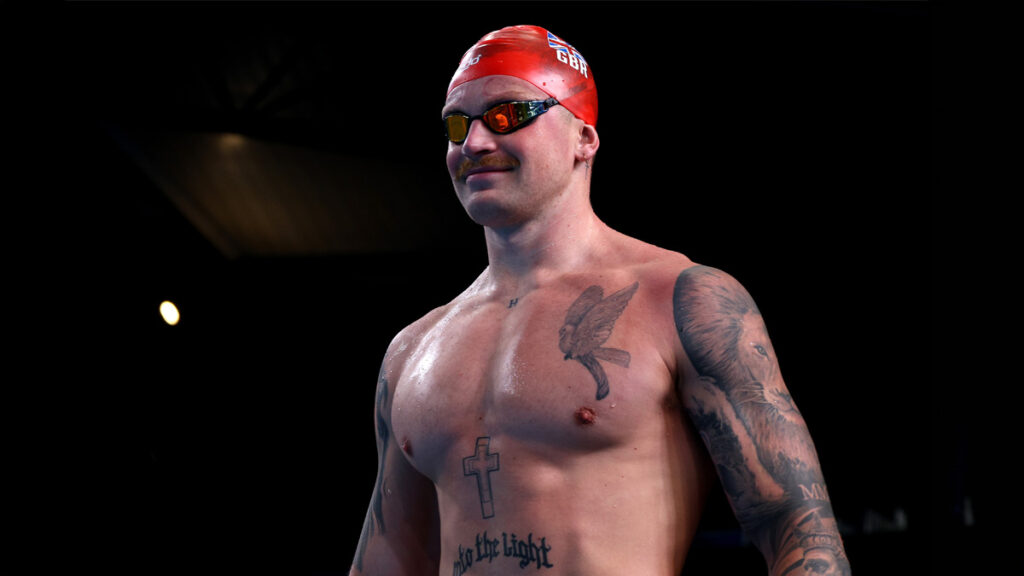The sweet spot of confidence
Staying the Distance author Catherine Baker looks to sport for lessons in confidence that can help make you a better leader
 [Image credit: Bob Martin/Allsport/Getty Images]
[Image credit: Bob Martin/Allsport/Getty Images]
Focusing as I do on sustained performance, I am often asked if there is one question that can help identify those who are likely to be able to perform over the long term and stay the distance.
Perhaps surprisingly, I believe that there is, and the optimum answer to this question might surprise you too.
The question is this: Am I good enough?
The answer that is consistently given by the best athletes, coaches, and leaders I have worked with is one that is based on some form of iteration of ‘Yes, and No’.
In other words, yes, I believe that I am good enough to achieve what I need/want to achieve. But equally, I appreciate that I could always get better.
The right level of confidence is central to sustained performance – confidence that gives you enough assurance to deliver and perform, balanced with an awareness that you are not the finished article and can always improve. This is the confidence sweet spot. And this is the case whether you are an elite athlete, an elite coach, or a business leader.
This is particularly pertinent for leaders of businesses that are growing and scaling up. And even more so where you have been there from the beginning, when it is natural to doubt if you have the required skill set for an evolving and changing business.
Because we know how this can go wrong, don’t we? Over-confidence – where you risk over-promising and under-delivering, and stunting your own development (why work hard at getting better if you are brilliant already?)
Fake confidence – the bombast, the strutting, that quickly crumbles when under pressure. Or the debilitating lack of confidence that comes with a belief not only that you are not good enough, but that you will never be good enough. This can prevent you from challenging yourself, from doing, from trying, and so from the growth that follows from these.
So what are some of the lessons that we can learn from sport to help find our confidence sweet spot? To ensure that we can continue to perform over the long-term, growing as our business grows.
Believe in improvement
The best athletes, coaches, CEOs, and aspiring leaders always keep in mind something that we all know from childhood, but which unfortunately some of us lose along the way. What is it? The belief that we can continue to improve. Continue to grow and develop.
For many of us as we progress and move into leadership, what gets in the way is a competing belief – that we should have all the answers, that we can’t admit to mistakes, and that we should just stick to what we know. So we get stuck. We stay in our comfort zone – a beautiful place to be, but one where nothing ever grows.
So find that childhood belief again. We are just as capable now of growing and developing as we were when children. Remove the ‘noise’ that’s trying to tell you otherwise, remain open, remain curious, push, and stretch yourself out of your comfort zone, and enjoy the huge progress and satisfaction that gives you, and the positive impact on those around you.
As Jim Collins said in his milestone book, Good to Great, one factor that was key to the great companies in every case was the type of leader who led the company into greatness. And it boiled down to this: leaders who were not constantly trying to prove that they were better than others, but who were constantly trying to improve.

Play to your strengths
Would you believe me if I told you that one of the best female tennis players of all time, who won 22 Grand Slam titles and held the no. 1 world ranking spot for a record 377 weeks, achieved all of this without being able to execute one of the basic strokes in tennis? That’s right, you read that correctly.
Steffi Graf could barely hit an attacking backhand. Much as she practised it in training, when it came to matches, she just couldn’t pull it off. Fortunately, her coach got round this by making sure they spent the majority of their time in practice focusing on developing and improving her strengths; her serve, her forehand and of course her amazing footwork, which enabled her to consistently run round her backhand.
This approach doesn’t mean you should ignore your areas of ‘weakness’ entirely. Whatever you are doing, there will probably be one or two key limiters which do require you to work hard at improving them. But we need to shift the balance away from our natural tendencies to focus on our weaknesses, and instead play to, and develop our strengths.
So how do you know what your strengths are? Number one: reflect. Number two: ask people. Number three: take an assessment (there are so many good ones out there). And of course, make sure you develop a team around you that plugs the gaps.
As the great basketball coach John Wooden famously said: “Do not let what you cannot do interfere with what you can do.”
Remember to consolidate
Remember though that if all you do is constantly focus on learning new things, you won’t leave any time for consolidation. And this is not conducive to sustained improvement.

Coach Mel Marshall shared this with me at the beginning of 2021: “People may think that my focus with Adam [Peaty] is on continuous improvement but what I’ve learnt is that it’s really important to periodise growth. There is a certain amount of time that you can be in your ‘grow zone’, but unless you spend time in your ‘know zone’ then actually you’ve not consolidated and started to use the learning that you have acquired.”
This approach certainly seems to have worked for Adam, the world record holder and about to take part in his third Olympic Games. So let’s ask that key question again: Am I good enough?
What’s your answer?
Catherine Baker is the founder and director at Sport and Beyond, and the author of Staying the Distance: The Lessons from Sport that Business Leaders Have Been Missing



